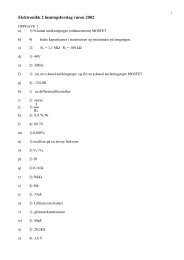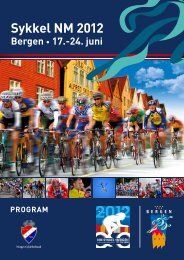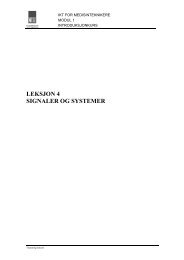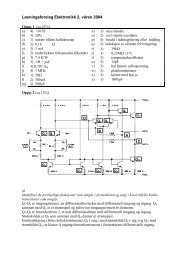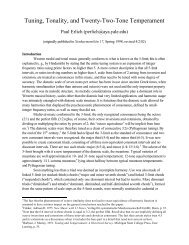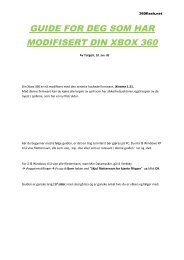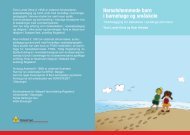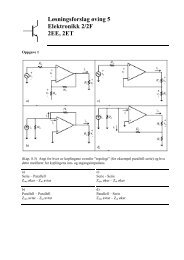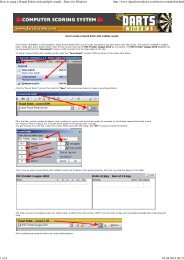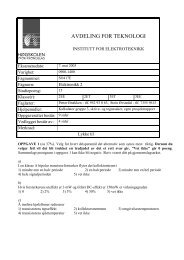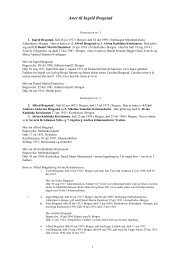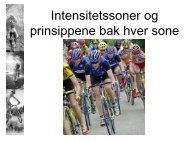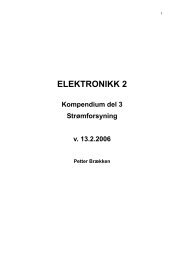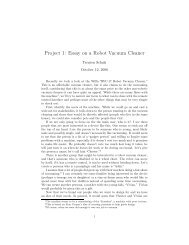The Online World resources handbook
The Online World resources handbook
The Online World resources handbook
You also want an ePaper? Increase the reach of your titles
YUMPU automatically turns print PDFs into web optimized ePapers that Google loves.
Web/Internet tools and pointers http://home.eunet.no/~presno/bok/v6.html<br />
A program that lets you view various Internet <strong>resources</strong>. Netscape and Microsoft<br />
Internet Explorer are popular browsers. Internet browsers let you follow <strong>World</strong> Wide<br />
Web hyperlinks.<br />
For links to sites where you can retrieve most popular browser programs, click here.<br />
For more information, see the Web Browsers OpenFAQ.<br />
Browser Add Ons<br />
Software that gives your browser programs more power. Visit this page for a list of your<br />
options.<br />
CGI<br />
Common Gateway Interface. Used by html writers to let a page communicate with other<br />
programs running on the server. For links to information and <strong>resources</strong>, check <strong>The</strong> CGI<br />
Resource Index, and Scriptsearch.<br />
9LGHR &RQIHUHQFLQJ RYHU WKH ,QWHUQHW<br />
CU SeeMe<br />
Cookies<br />
A cookie is few lines of text that is part of an http transaction. It was originally invented<br />
to help you navigate the web. When you are connected to a particular Internet site, the<br />
server doesn't actually remember you from one instruction to the next, much less one<br />
visit to the next. <strong>The</strong> server therefore sends you a cookie, and uses the information<br />
contained therein to remember your preferences (without bothering you), keep track of<br />
items in your shopping cart, or simply count you accurately as a single visitor and track<br />
your navigation through the web site..<br />
When you retrieve data from a site using a cookie, the server transmits the cookie to<br />
your browser along with the rest of the html document requested. Your browser stores<br />
the text on your hard disk. When you later retrieve the same Web page, the cookie is<br />
transmitted back to the server. <strong>The</strong> latter may then send an updated cookie.<br />
You can delete any cookies that are on your disk without harm. However, if you set<br />
your browser to refuse all cookies, then you may be unable to use certain sites to their<br />
full capabilities.<br />
Because the rendering engine used in web browsers is also woven into email clients<br />
and Usenet news readers, it is possible for someone who sends you email or posts and<br />
html article to a newsgroup to cause your machine to access images on his site when<br />
your read the mail or the article. If the sender customizes the URL in the message so that<br />
it contains your email address, he will also know exactly who you are.<br />
Click here for more information.<br />
CSS<br />
Cascading Style Sheets (CSS) is an Internet tool that separates the presentation from the<br />
structural markup of a Web site. CSS keeps the structure of a document lean and fast<br />
while controlling the appearance of its content. (Frequently asked questions regarding<br />
CSS).<br />
Domain Name System (DNS)<br />
<strong>The</strong> Internet DNS gives names to locations on the Internet, and consists of a hierarchical<br />
sequence of names, from the most specific to the most general (left to right), separated<br />
by dots, for example nic.ddn.mil.<br />
DNS is also a system that translates a domain name from letters (eg.<br />
www.google.com) into a numerical IP address (e.g. 204.71.200.73). Letters make it<br />
3 of 16 23.11.2009 15:51



